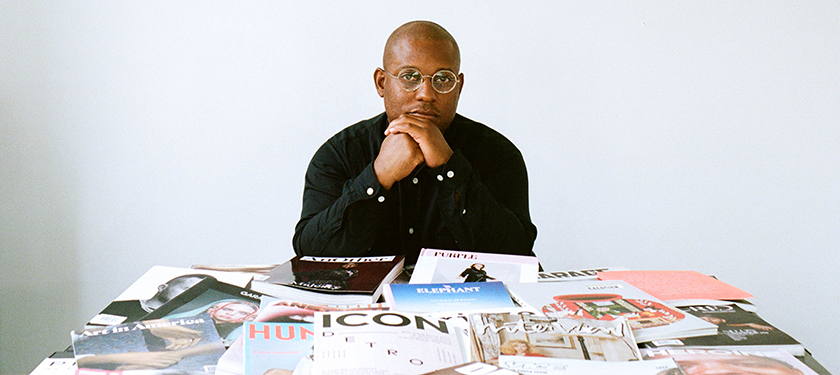
Business of Art | 10 Steps to Protect Your Narrative as a Black Artist
“We must end the cycle of compromising our identities to participate in wealth production.” — Amani Olu
Amani Olu, Founder and CEO of marketing agency Olu & Company, is, as stated in The Art Newspaper, an “art world multitasker.” This description is not an exaggeration. Olu is also the co-founder of Detroit Art Week, founder of IMG SRVR, as well as a curator, writer, and artist. With all this experience in the art world, the serial entrepreneur is very much aware of the challenges that Black artists and professionals face when their work is represented by primarily white-lead institutions. Misrepresentation, silencing, and the oversimplification of nuanced narratives are often a result of these encounters. And artists, eager to get a seat at the table, find themselves unable to break this circuit of trauma. But it doesn’t have to be this way. “We must end the cycle of compromising our identities to participate in wealth production,” reminds Olu. During his talk at “Defining Value(s) in the Art World,” an online event presented by Art World Conference (Fiscally Sponsored by NYFA), he provided a 10-step approach that will help Black artists safeguard their narrative.
STEP 1 – Establish Your Core Values
Establish what you won’t compromise by writing down all your essential beliefs. The initial list can be as long as you like. Later, you will narrow it down to just five items.
STEP 2 – Create the Right Language Around Your Work
You should always have on hand two sets of bios: a 250-word narrative version and a 100-word version with a top-level summary of your background. You should also have an artist statement, which must reflect the core values and ideas behind your practice, and a project statement(s), if you work serially.
STEP 3 – Define What Your Work Is NOT
Develop as many points as necessary to make clear what your work is NOT. You could start the document with a prompt: My work is NOT about… This is a simple way of getting people to approach, think about, and understand your work on your terms. This is key to establishing the guidelines for the following step.
STEP 4 – Define a List of Words that Institutions Can and Cannot Use to Reference your Work
An important tip from Olu is to read critically how other people talk and write about Black artists — that’s how you learn how to articulate how you don’t want folks to talk about you and your work.
STEP 5 – Define a List of Top-Level Talking Points About Your Work and Background
This is especially important if someone else will be speaking on your behalf.
STEP 6 – Provide Context
List references, research, and other materials that inform where your work is coming from. Not all Black people share the same politics, thoughts, and references. Establish how unique your process is so you’re safeguarded from these assumptions.
STEP 7 – Build a Toolkit
Put all of the information above together to share with those who will be displaying, marketing, and selling your work.
STEP 8 – Get Feedback from Colleagues and Friends
It’s okay to do this work by yourself, but if you can afford it, hiring a professional is a good idea.
STEP 9 – Take Advantage of Mock Interviews
This is especially important to practice with individuals responsible for messaging and selling your work — that’s how you can be sure they understood your toolkit (and you) correctly.
STEP 10 – Approve All Copy!
That goes for documents that are internal, external, press releases, quotes, statements, descriptions, captions, etc — when Olu says all copy here, he really means all. But make sure you can make yourself available to answer requests in a timely fashion.
EXTRA TIP: Be Transparent!
Let folks who want to work with you know about all of the above before committing to work with them. And if you’re afraid that these sets of boundaries will make you be seen as difficult, don’t be. They might actually filter those with whom you don’t want to work anyway. And in case you get cold feet, here’s a reminder from Olu: “Institutions are not necessarily superior.” Artists must negotiate with them as equals. You must know what your narrative is so you don’t allow folks to hijack it.
– Luiza Teixeira-Vesey, Designer/Marketing Officer
This article draws tips from Protecting Your Narrative: 10 Solutions For Black Artists, a presentation given by Amani Olu (CEO, Olu & Company and IMG SRVR; Founding Director, Detroit Art Week), at “Defining Value(s) in the Art World,” an online event presented by Art World Conference (Fiscally Sponsored by NYFA). To learn more about whether to apply for NYFA Fiscal Sponsorship as an artist project or emerging organization, read our FAQ section. Reach out to us at [email protected] for more information. Sign up for NYFA’s free bi-weekly newsletter to receive updates on future programs.